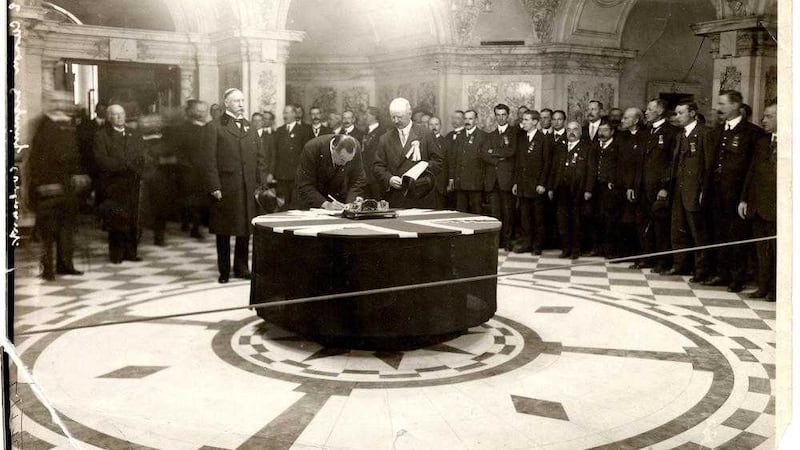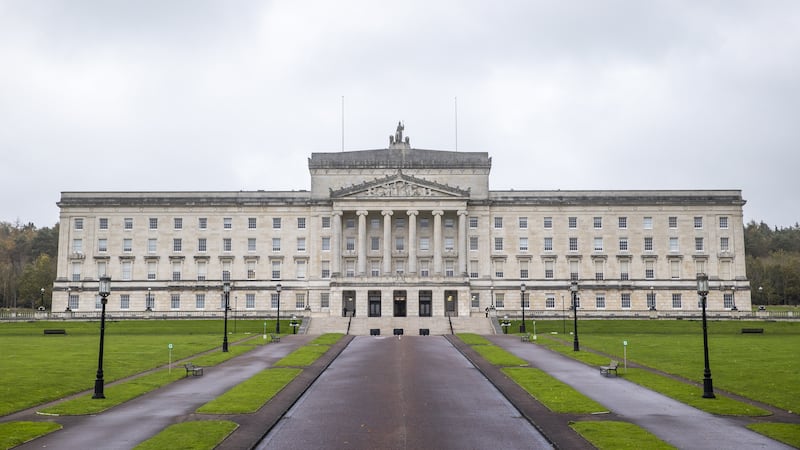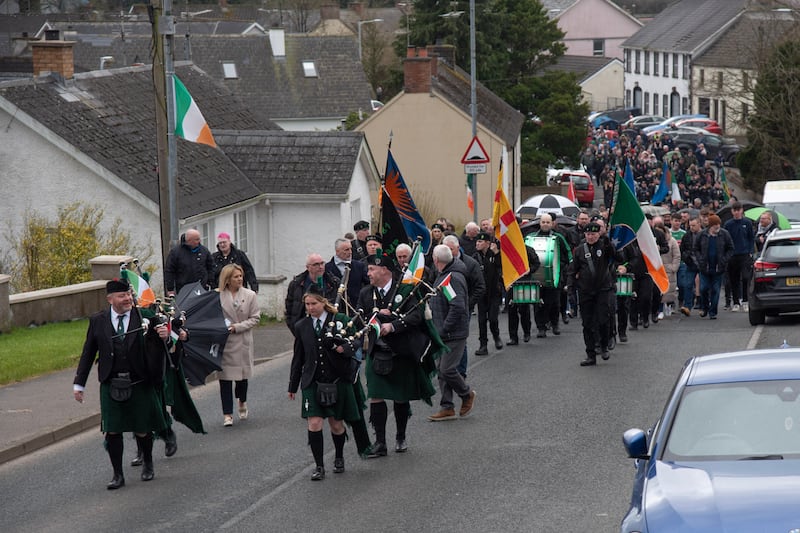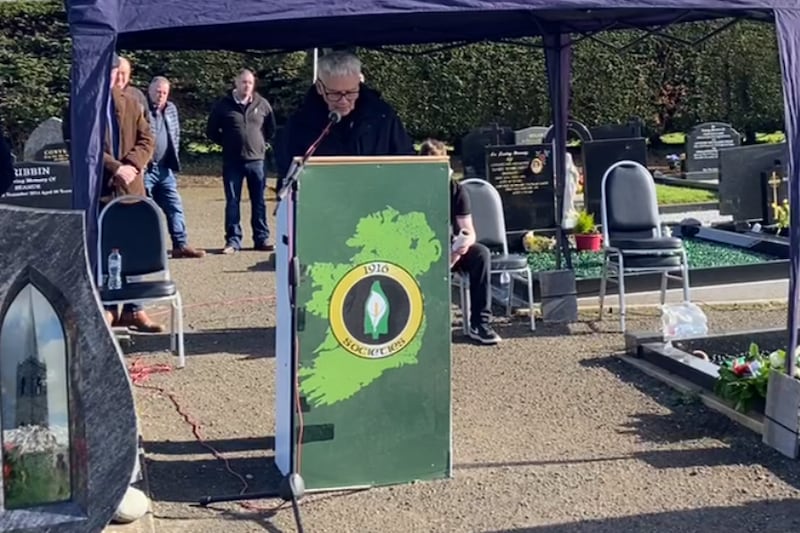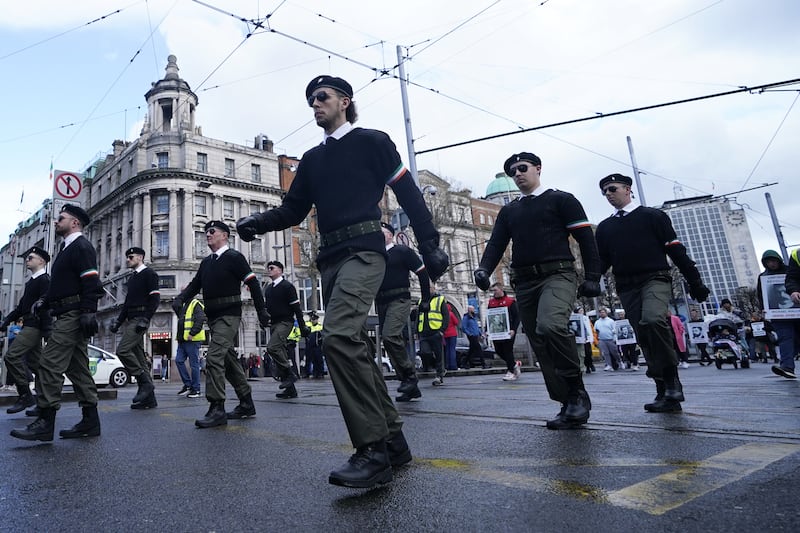UNIONISTS, generally speaking, regard the Easter Rising as an act of treason. Yet barely three years earlier, on January 13 1913, the Ulster Unionist Council had formally established the Ulster Volunteer Force (UVF).
Recruitment was to be limited to 100,000 men who had signed the Ulster Covenant the previous September, committing themselves to use “all means which may be found necessary to defeat the present conspiracy to set up a Home Rule Parliament in Ireland”.
Bonar Law, leader of the Conservative and Unionist Party, had made it clear that he would support Ulster Unionism and the UVF, even after 20,000 German guns and 3,000,000 rounds of ammunition had been smuggled through Larne in April 1914.
In other words, in that period before the outbreak of the First World War it seemed possible that the Ulster Unionist Council, Edward Carson and Law would have sanctioned armed rebellion to thwart the will of the British government. And since it was probable that the government would have deployed troops against them, it could have ended in a civil war.
It didn’t come to that: but unionists should bear that moment of history in mind before so easily condemning what happened in Dublin in April 1916. Had war not intervened in August 1914 and had the Home Rule Act not been suspended, then who knows what could have happened in Ulster during the late summer and autumn of 1914?
From the unionist perspective the Easter Rising was an armed rebellion, the very strategy they themselves had been considering.
Video courtesy of Creative Centenaries/The Nerve Centre
The Rising is unfinished business, of course. It failed. Ireland is still partitioned. The ambitions of the Proclamation remain unfulfilled. Yet because that failure continues to fuel Sinn Fein on both sides of the border it means that the Rising remains a ‘live’ issue for them a century later.
But Fine Gael and Fianna Fail have moved on and the relationship between the British and Irish governments is better now than it has ever been; which is particularly galling for Sinn Fein. They may whistle and hum ‘A Nation Once Again,’ yet every other party in Ireland seems happy to leave well enough alone.
I can understand why unionists are reluctant to commemorate, let alone celebrate the events of 1916, but they should, at the very least, take note and think about it. It’s never going to happen again. There isn’t another Rising around the corner. The south has enough to do without trying to take on the British or the unionists in Northern Ireland.
Indeed, with the removal of Articles 2 and 3 of the Constitution the Irish Government doesn’t even go through the pretence of wanting unity any time soon. On top of that, a mixture of anecdotal, electoral and polling evidence suggests that there’s no particular demand in Northern Ireland, either, for reunification. Unionists have good reason to be relaxed: history is on their side.
But unionists are never relaxed when it comes to republicanism. For, when it comes down to it, they still don’t trust republicans and nationalists. That distrust is rooted in the Rising, because they believed that republicans struck when the British were dealing with a much more important international issue. The old line about English misfortune and Irish opportunity still springs to their minds and feeds the assumption that republicans will always be prepared to use violence to get their way.
So when unionists got their own state in 1921 they ran it on the central assumption that republicans, nationalists and Catholics were one and the same thing and could not and should not be trusted. They needed to be kept down. They needed to be kept away from the levers of power. They shouldn’t be trusted.
It was an assumption that continued to prop up mainstream unionism until the mid-1980s and even today it’s not unfair to say that most unionists endure rather than embrace republicanism/nationalism in government.
That view of republicanism remains the lasting impact of the Rising upon unionism. It doesn’t matter that the Rising failed. It doesn’t matter that London and Dublin have a remarkably good and cooperative relationship. It doesn’t matter that the Union is, for the foreseeable future anyway, secure. It doesn’t matter that every IRA campaign since 1921 has ended in failure. It doesn’t matter about a ‘constitutional guarantee’ supported by the British and Irish governments. It doesn’t matter that Sinn Fein has been coaxed into Stormont and the Dail. It doesn’t matter that the political established in the south has no interest in a unity project.
It doesn’t matter because unionists seem incapable of ticking off these helpful realities and recognising the fact that they are in a pretty good position. They’re still hung up on the assumption that something bad is always just around the next corner. Ironically, they have fallen into the same narrative trap as Sinn Fein and believe that the past is always in front of you.
Well, it isn’t. The Easter Rising seems important, yet in the great scheme of things it probably wasn’t all that important at all. It delivered nothing and it settled nothing. The reunification of Ireland is as far away as ever.
Good men and women died for very little, as is often the case when it comes to risings and revolutions. And like so many other events in history, the Rising has reached the Man Who Shot Liberty Valance moment: “When the truth becomes legend, print the legend.”
David Robinson from Belfast City Council explains how the council is marking events of 1916 including the Easter Rising and the Somme:
Much of the Rising has been captured by others and used for their own agenda. That’s what happens, but it never makes it right.
Unionists were wrong to use it as one of the hooks upon which to hang 50 years of bad government. The IRA and Sinn Fein were wrong to pretend that they were somehow honouring sacrifice and finishing the job started in Dublin’s GPO.
One hundred years later we should also be reflecting on the present rather than raking over the bones and embers of an oddly courageous failure. The reality of history is, that in most cases and causes, we are no worse and no better than each other.
- Alex Kane is a political commentator and a columnist at The Irish News.
